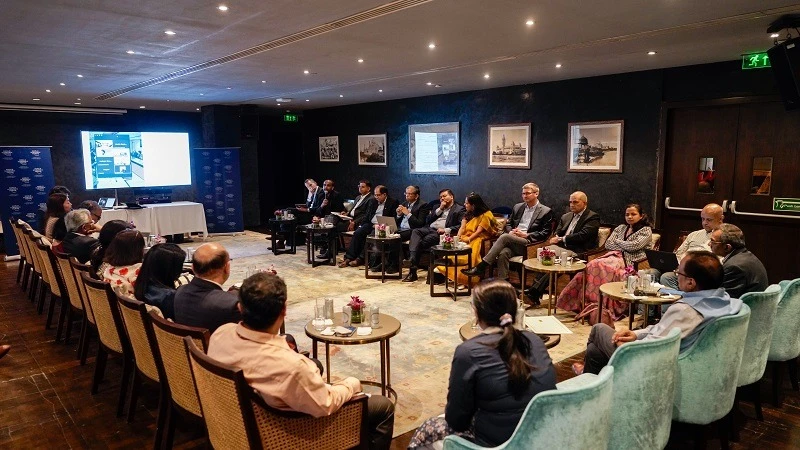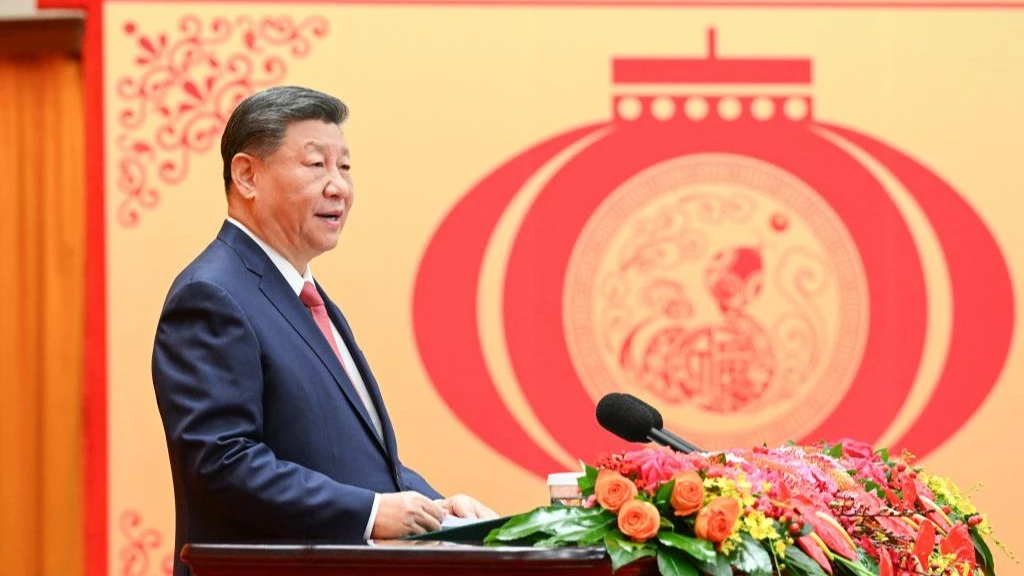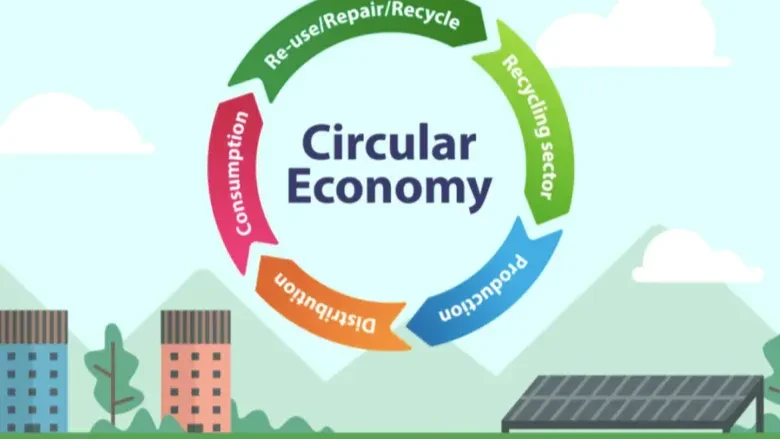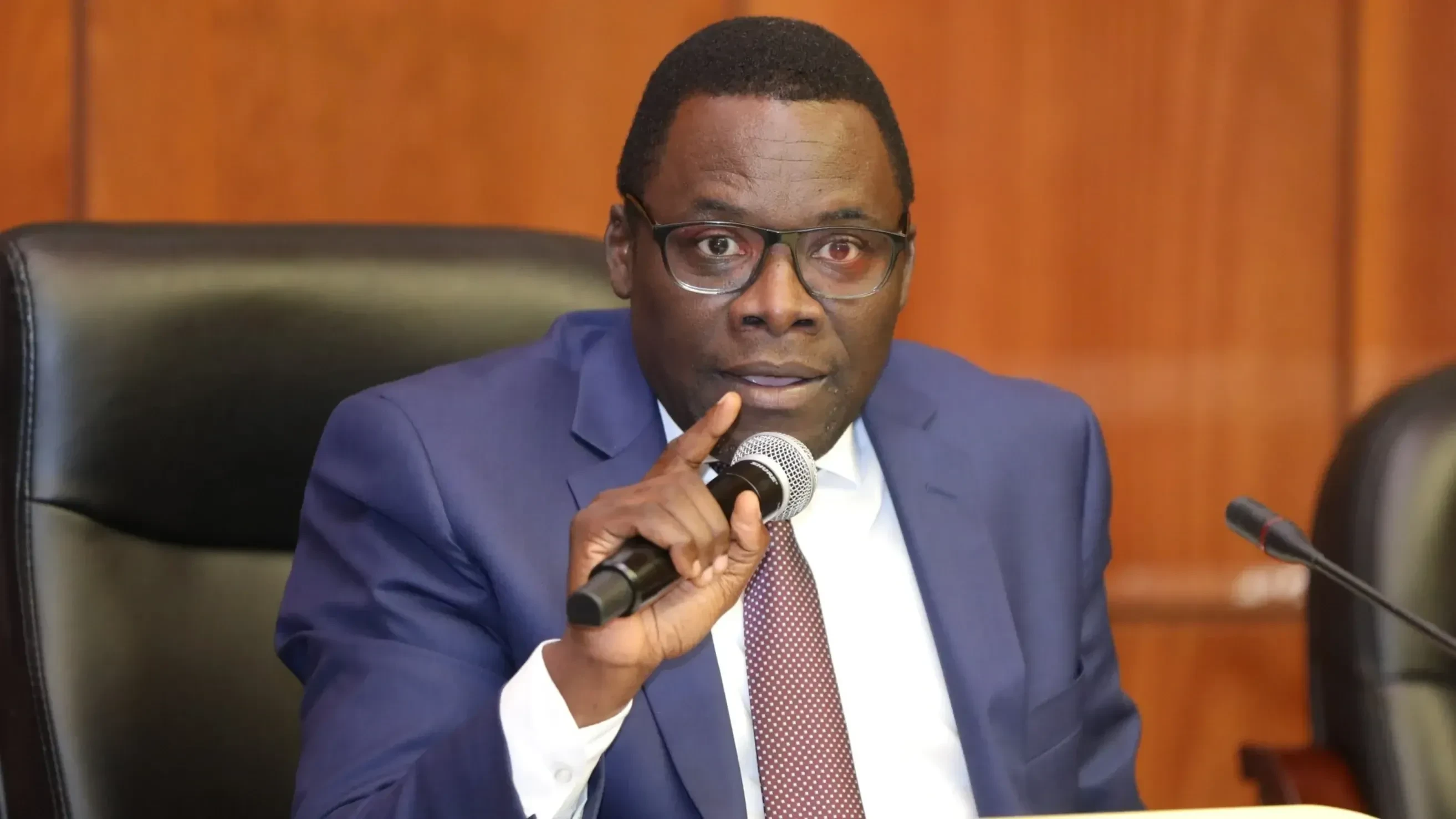AI for India 2030: A blueprint for inclusive growth, global guidance

ARTIFICIAL intelligence (AI) is transforming economies and industries worldwide, presenting an unparalleled opportunity for India to address systemic challenges and achieve inclusive growth.
With the potential to contribute $500 billion to the economy by 2025, AI stands to revolutionize key sectors such as agriculture, healthcare, urban planning and manufacturing.
However, realizing this promise requires not only technological advancements but also robust frameworks and equitable access to resources.
The AI for India 2030 initiative, co-hosted by the Ministry of Electronics and Information Technology of India, the Office of the Principal Scientific Adviser to the Government of India, Nasscom and the World Economic Forum's Centre for the Fourth Industrial Revolution, India (C4IR India), provides a structured approach to integrating AI across India’s socio-economic fabric.
Launched in alignment with the IndiaAI Mission in January 2024, the initiative emphasizes ethical, inclusive and responsible AI adoption to position India as a global leader in AI innovation.
Need for AI in India's development journey
AI is not merely a tool for innovation but a strategic enabler for solving India’s pressing socio-economic challenges. From improving agricultural yields to enhancing healthcare delivery and increasing manufacturing efficiency, AI has the potential to elevate productivity and drive growth in underserved areas.
However, challenges remain. India’s economy continues to grapple with sectoral inefficiencies, skill gaps and inequities that hinder its global competitiveness.
The AI for India 2030 Advisory Council has stressed the importance of the emerging technology in bridging these gaps, creating jobs and driving socio-economic inclusion.
"India has an opportunity to create a trillion-dollar digital economy by 2025, benefitting all sectors and people."
S. Krishnan, Secretary, Ministry of Electronics and Information Technology, Government of Indiasaid: "To enable this growth and become a global tech powerhouse, we need collaboration from all stakeholders to leverage Fourth Industrial Revolution technologies for critical challenges on health, education, smart cities and agriculture. AI for India 2030 is an important initiative in partnership with the Ministry of Electronics and Information Technology, enabling stakeholders across industry and start-ups to partner with the government to realize the potential of AI."
AI's ability to develop context-specific solutions provides India with a unique opportunity to address its diverse challenges while contributing to global AI governance and ethics.
Ajay Kumar Sood, Principal Scientific Adviser to the Government of India, remarked: "Our association with the Centre for the Fourth Industrial Revolution India is driving forward innovative solutions that address key challenges in healthcare, education, urban development and agriculture through the power of advanced technologies."
Building foundations for scalable AI solutions
The success of AI in India depends on the collaboration of multiple stakeholders, including government bodies, industry leaders, academia and startups. Public-private partnerships are essential to accelerate AI adoption, while regional initiatives such as AI centres of excellence provide localized ecosystems for innovation.
India’s digital public infrastructure (DPI) serves as a critical enabler for scaling artificial intelligence applications. By integrating AI capabilities into existing DPI systems, India can overcome traditional barriers to adoption and create a robust foundation for deploying AI solutions across sectors. As one council member noted: “We don’t need a separate DPI for AI; rather, we need our DPI to power AI.”
To support these efforts, resource allocation remains key. This includes both financial investments and the creation of sector-specific AI operating systems that integrate data, models and infrastructure.
These systems will enable seamless collaboration across industries such as agriculture, micro, small and medium-sized enterprises (MSMEs) and healthcare, fostering scaleable and impactful AI solutions. "India’s DPI provides a key head start in driving scale among AI use cases," noted a council member, highlighting its transformative role.
AI Playbook and Sandbox workstreams as catalysts for change
The AI for India 2030 initiative is driven by two critical workstreams: the AI Playbook and the AI Sandbox, both designed to operationalize AI adoption and innovation in priority sectors in India.
The AI Playbook workstream is progressing through two major components: the Future Farming Playbook for agriculture and the Future SMEs Playbook for MSMEs. These reports, to be published in early 2025, are being developed with insights from approximately 20 experts from domain, policy and technology spheres.
These multi-stakeholder communities are pivotal in shaping frameworks that address India’s unique socio-economic landscape while driving ethical and responsible AI adoption. The AI Playbooks integrate governance guidelines, actionable steps and best practices, ensuring inclusivity and scalability across India.
"At Mahindra, we believe in harnessing technology to drive meaningful change across industries. The AI for India 2030 initiative aligns perfectly with our vision of leveraging AI to create sustainable, impactful solutions. As part of this journey with the World Economic Forum, we look forward to shaping India’s future as a global leader in AI," said Mohit Kapoor, Group Chief Technology Officer, Mahindra.
The AI Sandbox, on the other hand, provides a controlled environment for testing and refining AI solutions before large-scale deployment. By offering startups and SMEs access to high-performance computing, datasets and mentorship, the sandbox democratizes AI innovation and ensures equitable participation.
Lessons learned from international collaborations, such as the AI Governance Alliance, further enhance the sandbox’s ability to integrate global best practices into India’s unique context. The AI Sandbox workstream has also seen significant advancements, with a multi-stakeholder community now deliberating on its value proposition. These discussions focus on identifying challenges and opportunities to unlock the sandbox’s full potential.
Ekroop Caur, Secretary, Department of Electronics, Information Technology, Biotechnology and Science & Technology, Government of Karnataka, said: "As India’s IT and start-up capital, Karnataka is committed to becoming a global leader in AI.
"We aim to build a robust AI environment that advances priority sectors such as agriculture, healthcare and education, positioning India as a hub for sustainable, tech-driven innovation. By providing a platform and sandbox for scaling AI solutions, we strive to empower businesses and drive impactful transformation through this collaboration."
After the publication of the playbooks and the AI Sandbox workstream, the community will work towards adopting and scaling these actionable frameworks, ensuring widespread impact across priority sectors in India.
India's role in the global AI ecosystem
"AI is set to reshape India’s tech landscape, and AI for India 2030 is the launchpad for that change. At Sarvam, we’re on a mission to make AI accessible and impactful for Bharat’s unique needs – and we’re excited to help drive this transformation forward," said Pratyush Kumar, Co-Founder, Sarvam AI.
India’s journey toward becoming a global AI leader is deeply rooted in its commitment to ethical and inclusive practices. Through initiatives like AI for India 2030, the Indian economy is not only advancing its own socio-economic goals, but also contributing to the global dialogue on responsible AI governance.
For instance, India’s ability to develop sovereign AI solutions tailored to its cultural and economic nuances has significant implications for the global AI landscape. "Global use cases don’t factor in the nuances of our culture. We need to build sovereign AI for India," said a council member, emphasizing the importance of context-specific innovation.
"Our efforts to upskill the workforce for the jobs of the future must be accompanied by the creation or fostering of a higher demand for these workers," says Shri Jayesh Ranjan, a special invitee to the Advisory Council. His words underscore the need to match workforce development with the demand for skilled labour.
By actively engaging in international forums and frameworks, such as the AI Governance Alliance, India is helping to shape global norms for responsible AI adoption. This approach not only bolsters India’s global standing but also reinforces its role as a model for leveraging AI to address local challenges.
Looking ahead for the future of AI
The AI for India 2030 initiative demonstrates that India is poised to lead the global AI revolution while ensuring that innovation benefits all segments of society.
As discussions continue at the World Economic Forum’s Annual Meeting in Davos, the focus will remain on scaling AI solutions, fostering partnerships and building a sustainable future through technology.
Rohini Srivathsa, Chief Technology Officer, Microsoft India and South Asia, said: "We at Microsoft believe AI has immense potential to benefit people, industries and governments, and we are committed to co-piloting India towards becoming an AI-first country.
"We are proud to be part of the AI for India 2030 initiative, as it fosters an environment of trust among multiple stakeholders, which is crucial for unlocking AI’s full value.
"Our collaboration with the Centre for the Fourth Industrial Revolution India unites the ecosystem to ensure that India adopts and scales AI in a manner that promotes trust, inclusion and responsibility."
Top Headlines
© 2025 IPPMEDIA.COM. ALL RIGHTS RESERVED

























